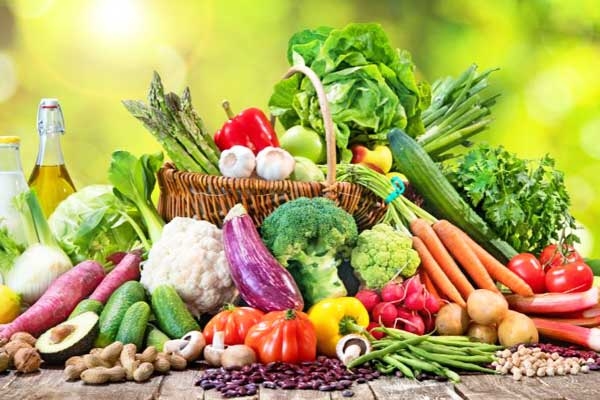
(Image source from: Canva.com)
We are the social media generation, conscious and always connected. We want our beauty products to be chemical-free, our food to be carb-free, and our lives to be stress-free (although that last word may be an exaggeration), but! The more health-conscious people become, the more we use the word “organic.” When a product claims to be organic, it often goes straight to your shopping cart. But what does organic food really mean? . In India, the term “organic” refers to food grown without the use of synthetic pesticides, fertilizers or genetically modified organisms (GMOs) and based on natural ingredients and methods such as crop rotation and composting. Organic farming's emphasis is on soil health and sustainable practices and natural pest control, and organic food production minimizes environmental impacts and promotes biodiversity.
However, it is important to note that natural foods and organic foods are not the same. Although all organic foods are natural, not all natural foods are organic. No genetically modified organisms (GMOs), artificial fertilizers or pesticides are used in the production of organic food and specific animal welfare guidelines are followed. However, labeling of natural foods is subject to less stringent regulations. Generally, this means that the product contains no artificial colors, flavors, or preservatives. However, we cannot guarantee that this product is free of GMOs and synthetic pesticides. Research shows that organic foods may contain more antioxidants and certain vitamins and minerals than conventional foods, but the differences are not consistently significant. Differences in vitamin content, such as vitamin C, between organic and conventional foods are usually minimal. Although organic farming can improve soil health, it does not necessarily result in significant changes in mineral content because mineral content is primarily influenced by soil quality.
Factors such as soil quality, crop type, seasonality and storage methods play a larger role in determining nutrient content than organic or conventional labeling. In addition, conventional products are often transported long distances, which can affect their freshness, while organic products are usually available locally and can therefore remain fresher. The main difference between organic and conventional foods is the amount of pesticides used. Organic farming uses significantly fewer pesticides and minimizes the use of pesticides. However, organic foods tend to spoil more quickly because they contain fewer preservatives. Additionally, organic food is expensive and difficult to obtain, especially for low-income families. To stay healthy on a budget, we recommend focusing on whole foods and seasonal produce, regardless of how they're grown.
It contains no artificial additives or pesticides, which reduces the consumption of toxins and provides numerous nutritional benefits. But with proper preparation and planning, both conventional and organic foods can be healthy. Organic foods can reduce exposure to certain chemicals, but there is no guarantee that they are completely free of contaminants. Conventional and organic products each have their own advantages and disadvantages. Organic food is beneficial, especially if you want to avoid pesticides. You may prefer organic versions of products with edible peel, such as: B. apples and tomatoes. However, if budget is a concern, focus on eating a balanced, nutrient-dense diet, whether organic or non-organic. Although organic food offers benefits such as reduced pesticide use, increased environmental impact and specific farming methods, it is not necessarily significantly safer or more nutritious than conventional options.
If you choose organic:
Reduce the use of pesticides: Choose organic products that are grown without synthetic pesticides.
Environmental Concerns: Organic farming practices support soil sustainability and health.
Animal welfare: Organic standards often ensure better living conditions for animals.
Personal Values: Buying organic products supports local farmers and sustainable practices.
If organic is not required:
Budget Constraints: Organic food is expensive. If cost is a concern, focus on affordable and nutritious options.
Minimize nutritional differences: Instead of sticking strictly to organic foods, emphasize a balanced diet with plenty of fruits and vegetables.
When availability is limited: Even if organic versions are not available, conventional products can remain healthy if washed correctly.
A good first step is to read labels carefully to make sure what you're buying is truly organic. When reading labels, avoid refined sugars and preservatives. Look for certifications like India Organic, USDA, Jaivik Bharat, etc. and check organic products carefully as they are naturally prone to staining and spoilage.










